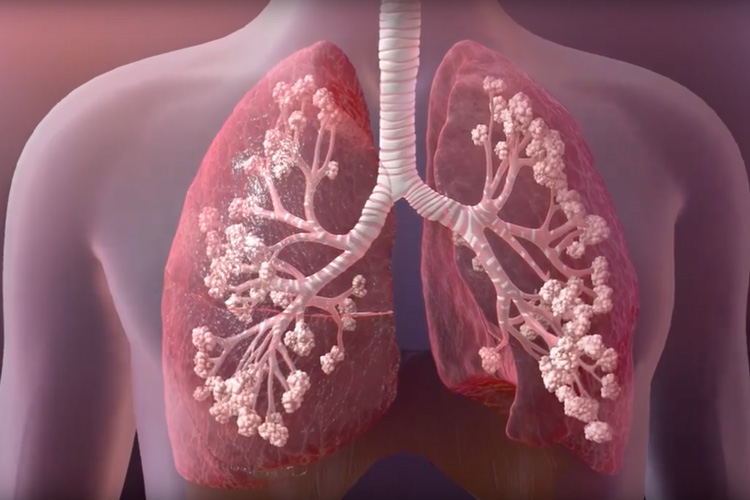Mental Health is sort of the hot button topic in the CF world these days. Finally… I might add.
It seems like just within the last few years someone, somewhere was like, “you know what… all these families might be dealing with some issues from the stresses and anxieties that go along with rigorous daily care for a terminal illness.”
Probably right.
I brought my girlfriend along with me to my talk at the Stony Brook University Hospital CF Education Day last weekend so she could see what they’re all about, and she was really impressed.
I go to a lot of these things, and I was too.
The CF team added in a “co-production” workshop where the families attending the education day gave some feedback and constructive criticism to the CF Center about their experiences.
Since the girlfriend is a mental health professional, she wanted to sit in on the mental health roundtable. She was also like my little spy picking up some useful information as it relates to her expertise, so we could spin it and actually turn feedback into results.
Over the past few days since my talk at Stony Brook we’ve discussed what she learned, coupled it with what I know about the state of mental health treatment in CF and have come up with some suggestions to improve the treatment across the board.
These are mere suggestions that we have developed from patient/family feedback (over the past several months, not just the SBU education day) and are meant to begin a discussion.
I think it’d be great if we could get Cystic Fibrosis Foundation to put their money where their mouth is and actually make a difference for CF patients (and families – parents deal with this stuff too) dealing with mental or emotional difficulties at every CF Center across the United States (International CF Associations can follow in suit).
- A standardized, CF-specific screening tool to assess for mental health needs.
CFF recommends that CF clinics screen patients for mental health issues using the Generalized Anxiety Disorder 7-item (GAD-7) scale and the Patient Health Questionnaire (PHQ-9). These tools were designed to assess for symptoms, severity, and response to treatment for Generalized Anxiety Disorder and Depression, respectively. There are a few problems with this: 1) Some symptoms of cystic fibrosis overlap with both anxiety and depression (ex. Having trouble relaxing, having trouble sleeping, having little energy, etc.). Patients, especially adolescents, may not be able to differentiate between typical CF symptoms and symptoms of a mental health issue. 2) These tools do not look at the functionality of mental health impacting a CF patient. For example, “feeling down” might be a tolerable norm for CF patients – screeners need to assess more specifically, e.g. “Have you been feeling so down that it has become difficult to adhere to your treatments?” 3) I will get into this more later, but using tools designed for specific mental health diagnoses minimizes the fact that CF is a complex, individualized disease. It is likely that most patients feel some anxiety and depression, but that does not mean they have an anxiety or depression diagnosis on its own.
This seems like something we should be able to institute. When treating any other cystic fibrosis symptom we use a medication or technique designed to attack that symptom as it relates to CF at large. Why should treatment of mental health be any different? Would it not be considered a CF symptom?
- A directory of mental health providers experienced with chronic illness.
The biggest complaint that we’ve heard from parents was that their child was referred by their CF clinic to a mental health professional in their community, but that mental health professional was not equipped to treat their child’s CF-related mental health needs. A directory should be created with mental health professionals who are experienced with chronic illness and/or treatment modalities used with illness-related mental health issues.
This goes back to my blogs about “Doctors unfamiliar with CF.” Think, for a moment, about going to get therapy from someone who has to learn about cystic fibrosis from scratch. The complexities that exist within the disease are not easily understood, especially when it’s a once a week conversation.
Think of it like this… We can agree that there is a difference between going a pulmonologist and a CFF accredited CF Center pulmonologist. Which of the two options knows how to treat CF properly?
Why can’t we create a list of localized professionals, whom we know can deal with a CF case?
- Better yet, designated mental health professionals on clinic staff.
It would be even more convenient if patients could access mental health treatment through their own CF clinic. Most clinics have social workers on staff, but those social workers are generally tasked with assessment and case management. It’s true, some clinics already have this, but every clinic should have specially trained staff that can provide therapeutic interventions.
Cystic fibrosis clinics crave funding – we know this. We’re a small patient population and don’t always generate a ton of cash flow for hospital systems, but our clinics are amazing and are held to some of the highest standards in healthcare thanks to CFF Care Network accreditations, which in turn helps a lot of these clinics get some of the funding they need.
It’s time to staff CF-specific mental health professionals inside all of these clinics. If we can do that, maybe we eliminate the need for point 2, or perhaps point 2 creates the mechanism for this to work.
I think about my clinic trips – it’s one stop shopping. Just about everything, outside radiology or very, very specific diagnostic testing is done in the clinic. From lab work, PFTs, PT training, studies, social work and mental health consulting, and everything in between is done in the clinic. Generally speaking I don’t have to go anywhere else in the hospital. Why can’t every CF clinic be a place for comprehensive disease-related mental health treatment?
- If we’re going with the idea of accessible mental health treatment at clinic, let’s throw in clinic psychiatrists who are familiar with both CF medications and psychopharmacology.
Back to “Doctors unfamiliar with CF,” I can only imagine the frustration when someone is prescribed a medication for their depressive symptoms that they cannot take due to its interaction with a CF-related med. Patients should have easy access to psychiatrists familiar with CF medications.
Is that problem remedied when we send our patients to psychiatrists who are familiar with general CF care and treatment? I think we’re used to dealing with some medication related issues in CF, but we should be working to reduce the incidence of such problems whenever possible.
- An understanding that having mental health symptoms does not equate to a mental health diagnosis.
Some CF patients may have Major Depressive Disorder, Generalized Anxiety Disorder, or PTSD related to CF or unrelated to CF. However, it is safe to assume that most patients at least experience symptoms of these disorders, without necessarily meeting the criteria for a full blown diagnosis. Professionals need to recognize that CF patients do not fit into neat, criteria-laden mental health boxes. For example, a CF patient may have crippling anxiety when he tries a new medication for fear of an allergic reaction (I think I fall into this category). This anxiety response is somewhat proportionate to the actual risk – medication allergies are a real threat. As such, this patient may not meet criteria for an anxiety disorder. Would he still benefit from therapy to learn to cope with this anxiety? ABSOLUTELY! (I do and I have!) Patients who do not meet full criteria for a mental health disorder would still benefit from mental health supports. On a different note, many patients may feel that “another diagnosis” on top of extensive medical issues is too overwhelming. Let’s offer mental health treatment to all CF patients, not just those who fit into the DSM-5 requirements.
Would it be so unrealistic to think that if a handful of patients are dealing with the above issues, many more are too?
- More conversation about mental health.
I think the ball is really rolling on this one, but more is better. Research shows that years of battling illness may impact the brain in the same way that an acute trauma would (ex. Increased cortisol and norepinephrine leading to neurological changes such as impaired memory and concentration, sleep disturbances, difficulty regulating emotions, and heightened panic response, among other changes.) And we all know that stress, anxiety, and depression can take a toll on one’s physical health – the crux of CF treatment. Fortunately, mental health issues are 100% treatable – the only issues standing in the way are stigma and access.
It’s kind of like when we found the CF gene. We knew there was a genetic issue, we just didn’t know where. Now we know where it is, what it does, and we’re getting better at treating it every day. Similar principle here… if a handful of people are dealing with some emotional difficulties, why not look at them as CF symptoms? Let’s figure out how to diagnose it properly as it may relate to CF, then treat it and go from there.
The credit goes to CFF for starting this movement… now we need to follow through. Our patients (and families) deserve proper diagnosis and treatment as their symptoms may relate directly to cystic fibrosis. Let’s standardize this across the United States.





